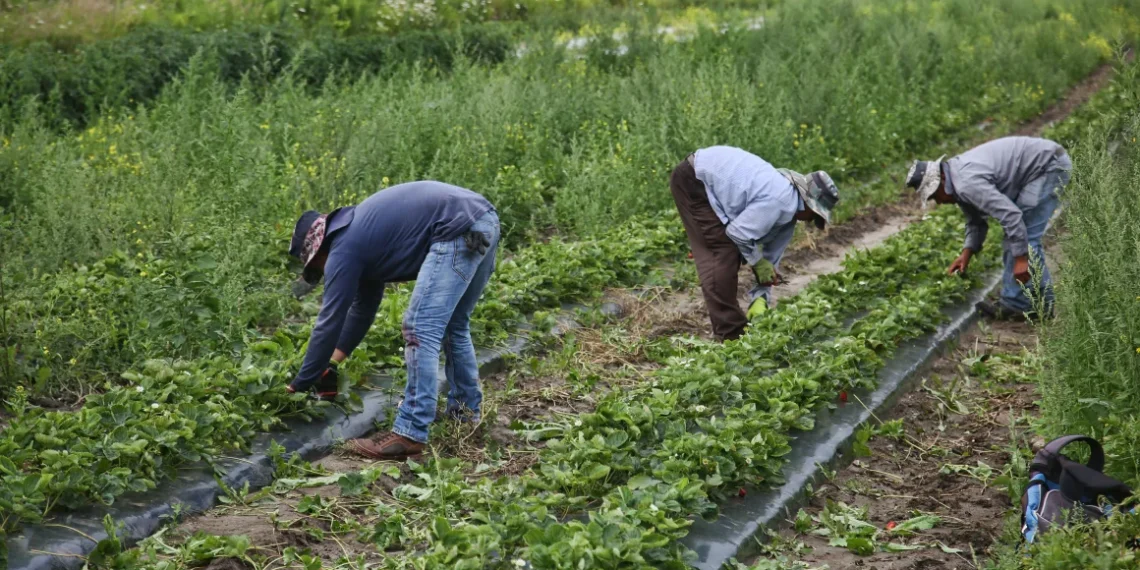Migrant workers have long been an essential part of Canada’s workforce, contributing significantly to sectors such as agriculture, food processing, construction, and hospitality. Yet, a shocking new report from Amnesty International has revealed the harsh realities these workers face under the country’s Temporary Foreign Worker Program (TFWP). Instead of the opportunity for a better life that many migrants hoped for, they are instead subjected to rampant abuse, discrimination, and exploitation.
The Amnesty report, released this Thursday, pulls back the curtain on the severe mistreatment of migrant workers in low-wage sectors. It highlights the exploitation of workers from countries in the Global South—many of whom are fleeing poverty and seeking a brighter future. However, instead of finding hope, these workers find themselves trapped in oppressive systems that deprive them of their basic rights and dignity.
The Shocking Truth Behind the TFWP: A System of Abuse
The core of the issue lies in the structure of the Temporary Foreign Worker Program itself. The TFWP uses closed work permits that bind workers to a single employer. This system grants employers unchecked power over their workers’ livelihoods, as well as control over their migration status. This leaves workers vulnerable to exploitation since the fear of losing their job—or even being deported—prevents them from speaking out about the abusive conditions they endure.
Migrant workers often find themselves isolated, struggling to escape the cycle of abuse. Many are forced to endure long hours with little to no rest, unsafe working conditions, and wage theft. Amnesty’s research, which involved interviews with 44 migrant workers, paints a grim picture of the realities these individuals face. It’s a nightmare where exploitation is not the exception but the norm.
Personal Accounts of Abuse: Voices from the Field
Bénédicte, a woman from Cameroon, shared her harrowing story of abuse while working on a farm in Canada. Under a two-year closed work permit, she was subjected to both psychological and sexual abuse by her employer. When she left the farm in 2018, her employer cancelled her work permit, leaving her in an incredibly vulnerable situation with no legal standing to remain in Canada. In an emotional testimony, she recalled, “I did not expect to be a slave here.” Bénédicte’s story is just one of many.
Miguel, a Guatemalan worker, also recounted the harrowing abuse he experienced under his employer’s control. His passport was confiscated, and he was constantly monitored through cameras placed in his living and working spaces. It was a life under constant surveillance—one that left him feeling helpless and fearful. His account illustrates just how extreme the control can be under the TFWP, where employers exert total power over their workers’ lives.
Unsafe Working Conditions and Wage Theft: The Harsh Realities
Beyond physical and psychological abuse, migrant workers under the TFWP often face unsafe working conditions that endanger their health and well-being. Many report long hours in grueling labor with little to no rest, in environments that fail to meet basic health and safety standards. In the construction industry, workers are often tasked with dangerous jobs involving heavy machinery and precarious heights, all while being denied proper protective gear or training.
Unpaid wages are another critical issue. Migrant workers have reported instances where employers refuse to pay them for the hours they worked, or worse, withhold wages altogether. This financial exploitation is compounded by the fact that workers often have no legal recourse to claim what they are owed, as they fear losing their work permit and being sent back to their home country.
Amnesty International’s report underscores how deeply embedded these issues are in Canada’s immigration system. The exploitation and mistreatment of migrant workers in the TFWP are not isolated incidents—they are a widespread problem that requires urgent reform.
Racial Discrimination and Exploitative Living Conditions
Racial discrimination further exacerbates the plight of migrant workers. Many workers of color are forced into the most physically demanding and hazardous jobs simply because of their ethnic backgrounds. They are often assigned to tasks that Canadian workers are unwilling to perform, regardless of the risks involved. This systemic discrimination not only fuels inequality but also perpetuates the cycle of abuse within the TFWP.
Furthermore, many migrant workers are forced to live in substandard housing that lacks basic necessities like drinking water, adequate sanitation, and even heating. These poor living conditions make it almost impossible for workers to maintain their health, further compromising their well-being. In many cases, the poor living conditions are a direct result of the same employers who exploit their labor, creating a system of dependency and fear.
Amnesty’s Call for Reform: A Need for Urgent Change
Amnesty International has called for urgent reforms to the Temporary Foreign Worker Program to address these systemic issues and better protect migrant workers’ rights. Erika Guevara-Rosas, senior director for research, advocacy, policy, and campaigns at Amnesty International, expressed deep concern over the situation, noting, “The abuse experienced by migrant workers in Canada is deeply troubling, especially for a country that claims to be a leader when it comes to protecting human rights.”
In response to the findings, Ketty Nivyabandi, an official at Amnesty International Canada, urged Canadian authorities to align the TFWP with the country’s human rights obligations. The current framework, she argues, not only fails to protect workers but actively enables their exploitation. She emphasized the need for reforms that would ensure migrant workers have access to the same rights and protections as Canadian citizens and permanent residents.
Government’s Response and the Path Forward
While the Canadian government has acknowledged the report, it has pledged to take stronger action to protect temporary foreign workers. Nancy Caron, a spokesperson for the government, reassured the public that the safety and dignity of temporary foreign workers are taken seriously. She highlighted that workers are entitled to the same employment standards, rights, and protections as Canadian citizens.
The government has also outlined measures to improve the program, including offering private health insurance, creating a tip line for workers to report issues, and considering open work permits that would allow workers to change employers without fear of retaliation. However, the question remains whether these measures will be enough to address the widespread abuse and exploitation within the system.
A Call for Global Attention and Action
This report serves as a wake-up call for the Canadian government and for the global community. The abuse of migrant workers is not just a Canadian issue—it is a human rights issue that demands urgent action from all sectors of society. Governments, businesses, and individuals must come together to demand better protections for migrant workers, who are essential to the economies of many nations but often face exploitation in silence.
For those who are concerned about the exploitation of migrant workers and other human rights violations, it is crucial to stay informed and take action. Join our community of readers to stay updated on the latest news and developments in human rights, energy, construction, engineering, and cryptocurrency. For real-time updates, connect with us on WhatsApp or Telegram. If you have a report or article to share, send it to report@epci.ng. Stay connected and informed—follow us on X (Twitter), Instagram, LinkedIn, and Facebook for more insights into global issues and industry developments.







Leave feedback about this